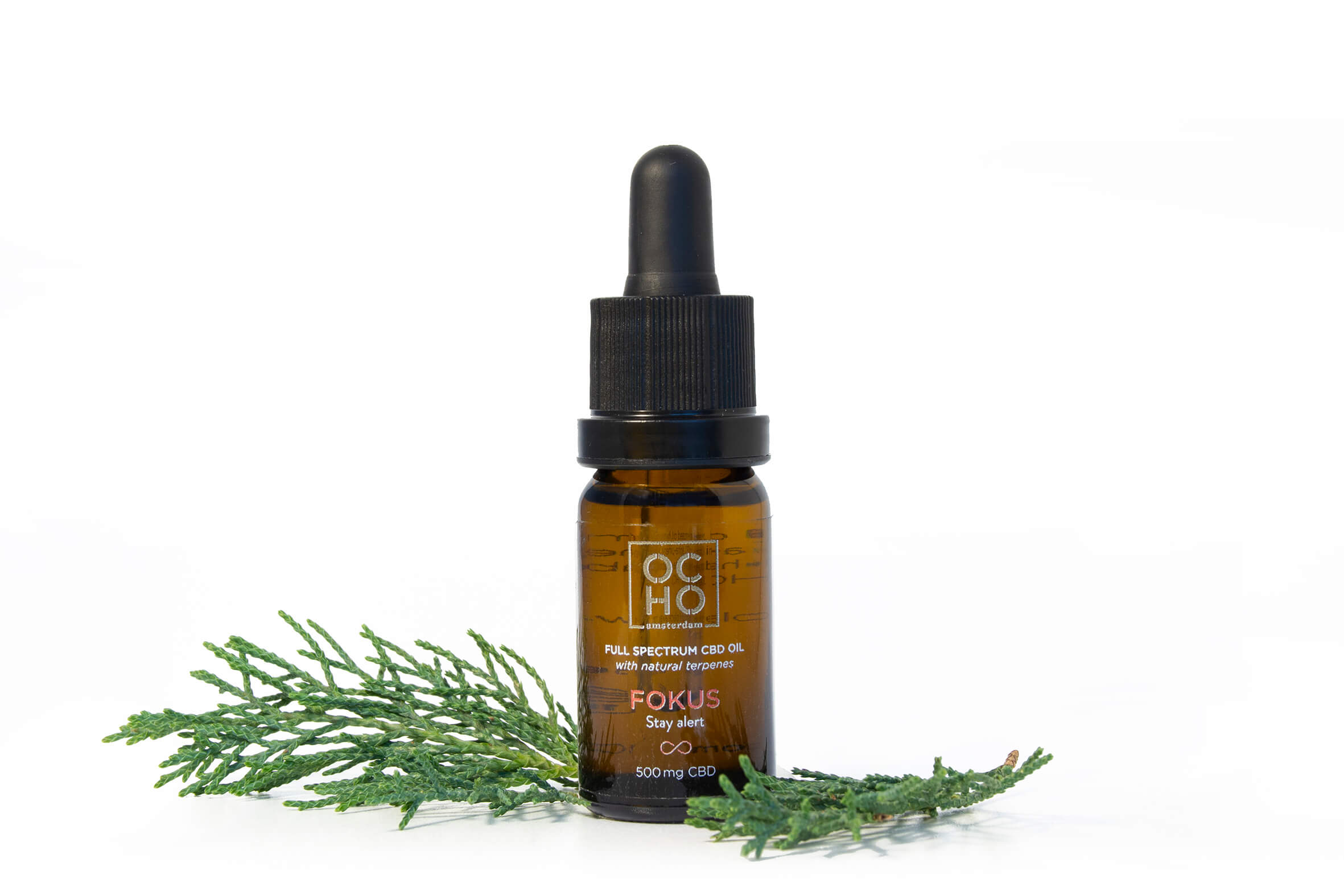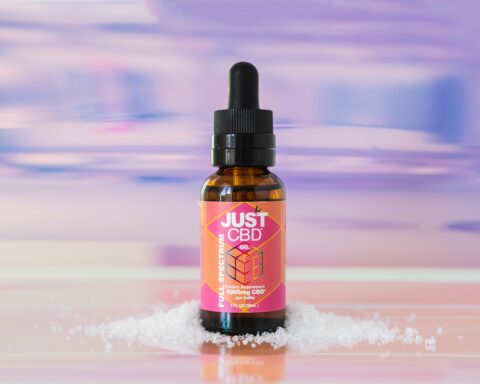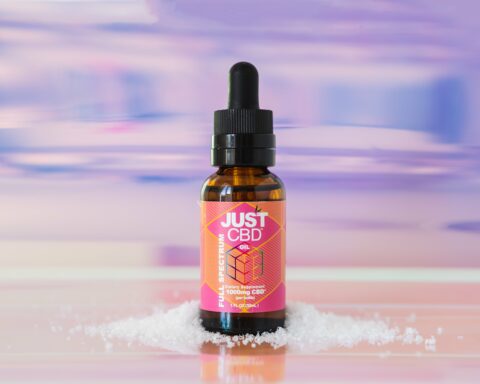This article explains the differences between Broad-spectrum CBD and Full spectrum CBD; it gives their pros and cons, their legality, how to choose the best CBD spectrum, and which one is the better.
CBD isolate, broad-spectrum CBD and Full spectrum are the three main varieties. Each spectrum has a different set of advantages. Their variation in the types of cannabis resins and the effects of each resin forms the basis for their differences. Notably, hemp-derived CBD contains trace amounts of THC. Therefore, their effects vary in the presence or lack of THC. Herein, we compare and contrast the full-spectrum and broad-spectrum CBD.
WHAT IS FULL-SPECTRUM CBD VS BROAD-SPECTRUM CBD
Full spectrum CBD contains every phytochemical compound in Cannabis sativa, including THC, essential oils, terpenes, and other cannabinoids. Individuals might never experience full spectrum CBD oil intoxication due to the minimal THC percentage (0.3%). THC can accumulate in the body over time and appear in a drug test.
Broad spectrum CBD oil, like the full spectrum, combines cannabidiol with all the other elements present in hemp. THC is the only active component lost during the extraction of broad-spectrum. The broad spectrum has various cannabinoids, including CBG and CBN. Additionally, the spectrum may provide a wide range of effects without THC since it utilizes various flavonoids and terpenes.
PROS AND CONS OF FULL SPECTRUM VS BROAD SPECTRUM
FULL-SPECTRUM
PROS
The following are a few possible health benefits of CBD: anti-inflammatory, pain reduction, anti-anxiety, antioxidant, and anti-seizure. Additionally, it might alleviate the signs of a few mental illnesses and lessen muscle aches. There is little research on the utilization of CBD for problems related to dental health. However, according to Lowe et al. (2021), CBD contains terpenes and flavonoids with anti-microbial, analgesic, or anti-inflammatory effects. As a result, patients may use CBD products to treat conditions like toothache, dental caries, and gingivitis.
CONS
Full spectrum CBD could have euphoric effects when taken in large dosages. In addition, full-spectrum users might fail a drug test if the spectrum contains elevated levels of THC.
BROAD-SPECTRUM CBD
PROS
Van der Gaag et al. (2020) noted the following health advantages of CBD: anti-inflammatory, anti-seizure, and anti-biotic. While the majority of broad-spectrum CBD products are THC-free, some may contain traces of the psychoactive compound. Thanks to the entourage effect, broad-spectrum CBD products could provide a wider range of health advantages.
CONS
The absence of THC makes broad-spectrum CBD potentially less advantageous. This might imply that it offers fewer advantages than full-spectrum CBD. The danger of testing positive for narcotics increases for persons who use CBD products. These screens might detect trace levels of THC in broad-spectrum CBD.
THE LEGALITY OF FULL-SPECTRUM CBD OR BROAD-SPECTRUM CBD
According to Mead (2019), federal law makes CBD made from hemp legal. Nevertheless, it can be against state law. Contrarily, CBD extracted from cannabis is prohibited by federal laws, while some states highly regulate regulation of the cannabis derivative. Therefore, consumers should research the legal requirements in the state they intend to visit or live in before buying CBD products.
HOW TO CHOOSE THE BEST CBD SPECTRUM
There are a variety of variables that may affect the selection of one sort over another. Pick a product that best suits your needs rather than a product deemed superior. Individuals are aware that whole-plant extracts from both spectrums comprise CBD, essential oils, terpenes, and other cannabinoids. Additionally, since each spectrum contains cannabis components besides CBD, they support the “entourage effect.” Full spectrum CBD oil has THC, but broad-spectrum CBD does not; this is the fundamental distinction between the two. While the full spectrum oils include a small amount of THC, they are not enough to cause intoxication.
WHY INDIVIDUALS SHOULD CHOOSE CBD OIL BEST FOR THEM
People consume cannabis derivatives for different reasons; these reasons determine the choice of the cannabis spectrum. For example, users with sleep disorders can select the full-spectrum CBD; THC in the full-spectrum may influence sleep more than other cannabinoids. Similarly, users who fear testing positive for a drug test could pick the broad-spectrum CBD. One can seek medical advice if one cannot decide on the best CBD product.
FULL SPECTRUM VS. BROAD SPECTRUM: WHICH IS BETTER?
Different bodies react differently to CBD in a variety of ways. For instance, users with elevated body weight may require a full-spectrum CBD for maximum effects. Similarly, users whose bodies react negatively to THC could select the broad-spectrum oil without THC. Therefore, the choice between the broad and full spectrum depends on multiple factors.
CONCLUSION
For certain CBD consumers, a broad-spectrum product is ideal because they get all the benefits without worrying about THC. Others might be okay with the full spectrum because of their way of life, place of residence, and employer’s policies on THC, among other factors. Notably, CBD is well tolerated in the body. However, the cannabis derivative may have side effects when used wrongly or when taken in excess. First-time users should start slow and adjust the dosage gradually to allow the body to adjust to the cannabis. Seek medical advice before substituting CBD for pharmacological drugs.
REFERENCES
Lowe, H., Toyang, N., Steele, B., Bryant, J., Ngwa, W., &Nedamat, K. (2021). The Current and Potential Application of Medicinal Cannabis Products in Dentistry. Dentistry journal, 9(9), 106.
Mead, A. (2019). Legal and regulatory issues governing cannabis and cannabis-derived products in the United States. Frontiers in plant science, 10, 697.
van der Gaag, W. H., Roelofs, P. D., Enthoven, W. T., van Tulder, M. W., &Koes, B. W. (2020). Non‐steroidal anti‐inflammatory drugs for acute low back pain. Cochrane Database of Systematic Reviews, (4).
- Eye Spy: Worldwide Eye Color Percentages - April 19, 2024
- Elevate Energy, Soothe Stress, And Peak Performance with The New UNBEETABREW Coffee Sensation - September 21, 2023
- Chef Bob’s Coffee: A Journey Fueled by Passion - July 29, 2023








